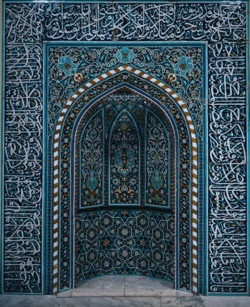Remembering the Promised Messiah
 Today is 23 March 2018, and it's
been 129 years since the Promised Messiah, Hazrat Mirza Ghulam Ahmad (as) of
Qadian, founded the Ahmadiyya Movement in Islam and accepted the oaths of
allegiance (Bai'at) from his 40 disciples in the house of Sufi Ahmad Jan
in Ludhiana. The first person who took the oath from the hand of the Promised
Messiah (as) was Hazrat Maulvi Nuruddin (ra) of Bhera who later became the
first caliph of the Promised Messiah (as) - Khalifatul-Massih Awwal.
Today is 23 March 2018, and it's
been 129 years since the Promised Messiah, Hazrat Mirza Ghulam Ahmad (as) of
Qadian, founded the Ahmadiyya Movement in Islam and accepted the oaths of
allegiance (Bai'at) from his 40 disciples in the house of Sufi Ahmad Jan
in Ludhiana. The first person who took the oath from the hand of the Promised
Messiah (as) was Hazrat Maulvi Nuruddin (ra) of Bhera who later became the
first caliph of the Promised Messiah (as) - Khalifatul-Massih Awwal.
In
Mauritius and other countries of the world, this historic day is known as: “Promised Messiah Day” and we, the Ahmadi
Muslim, take this opportunity to speak about the life and aspects of the mission
of the Promised Messiah (as).
Hazrat
Mirza Ghulam Ahmad (as) belonged to a Persian clan named Burlass. Among his
ancestors was Mirza Hadi Baig, who emigrated from his hometown Samarkand
(Khurasan) to settle in India accompanied by two hundred people from among his
clan who included his family and his employees. He was a very noble person, a
scholar and a pious person. India was at that time under the reign of the
Mughal emperor Babar (1483-1530), and the emperor had given vast expanses of land to Mirza
Hadi Baig as a gift for his loyal services. (Inset: Illustration of Babur, founder of the Mughal Empire in India, 1526-1857)
Thereafter
Mirza Hadi Baig chose a portion of this vast land, and decided to settle there
with his clan. He then founded a city and named it Islampur and with the
passage of time, the name Islampur passed through several forms of
change and was known as Islampur Qadi Maajhi, and then simply Qadi
Maajhi, and then Qadi, and where finally this city was known like Qadian.






